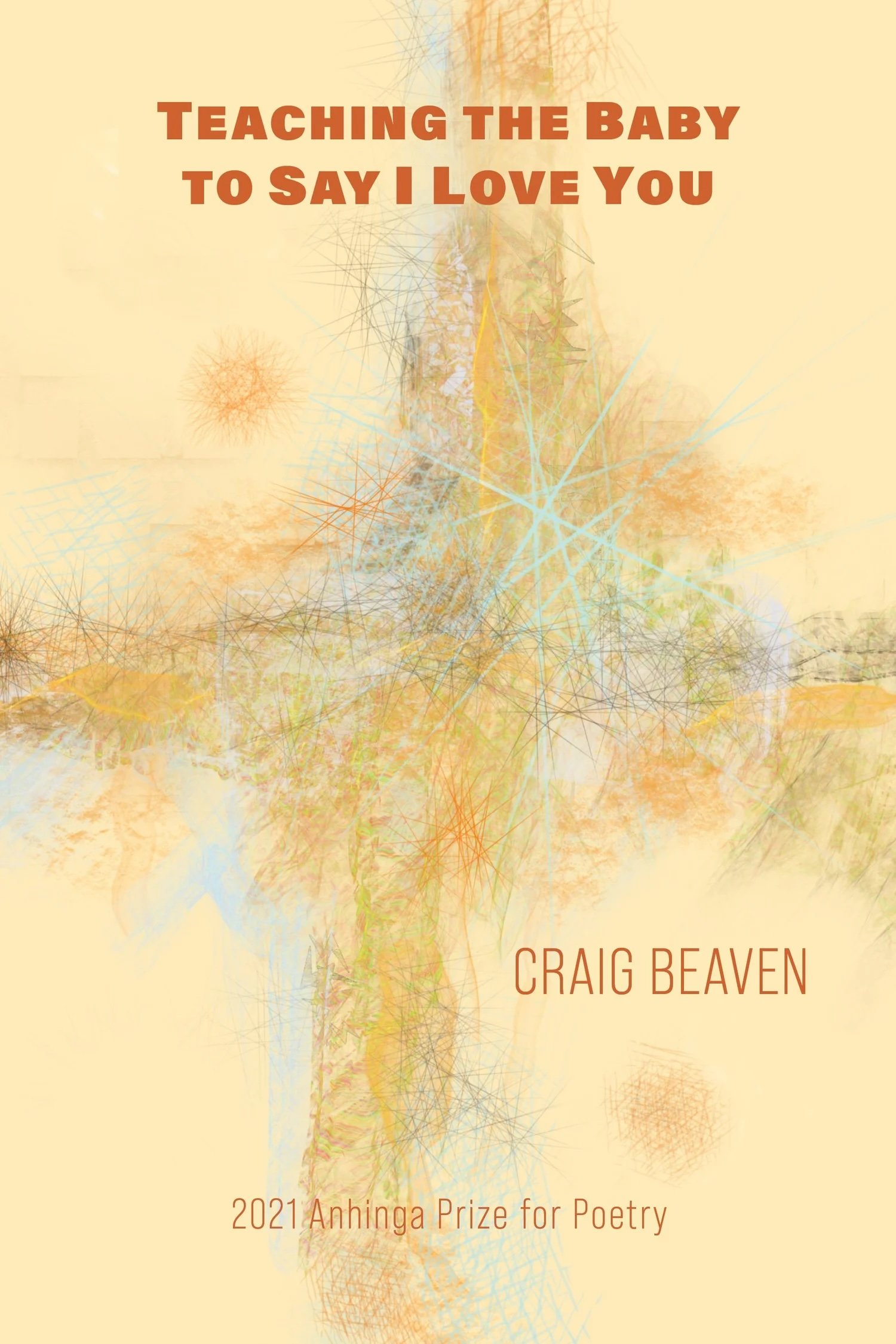Craig Beaven
Craig Beaven’s collections of poetry are Teaching the Baby to Say I Love You, winner of the 2021 Anhinga Prize, Natural History (Gerald Cable Book Award, 2019) and Teaching English Lit on the Day After a Shooting (CutBank Chapbook Prize, 2022). He is the recipient of fellowships and scholarships to the Sewanee Writers Conference, the Vermont Studio Center, and the Martha’s Vineyard Institute for Creative Writing. His poems have appeared in Prairie Schooner, Western Humanities Review, Carolina Quarterly, Hollins Critic, Atlanta Review, Spoon River Poetry Review, the Best New Poets anthology, and many others. A Kentucky native, Beaven earned an MFA at Virginia Commonwealth University and a PhD from the University of Houston. He lives in Tallahassee, Florida.
In Teaching the Baby to Say I Love You, Craig Beaven takes the reader on a heartfelt journey through the current American political landscape. The long title poem uses teaching—in a world to familiar with classroom gun violence—to meditate on love, race, language, and terror. A second sequence makes those fears personal and individual, and the third traces these topics to the deep historical past. Throughout, Beaven asks questions about the idea of terror in a world where dread and violence are perpetrated by the government, police officers, students, and neighbors hiding behind social media aliases. In poems narrative and complex, Teaching the Baby to Say I Love You examines our present, often chaotic world, with rich and powerful language.
From the first pages of Craig Beaven’s memorable book, I care — deeply — about this speaker and his characters. Here is a white father trying to protect his Black children in a treacherous world. Here is a teacher whose students are twisted up in the maelstrom of racism and staggering gun violence. Craig Beaven deftly weaves the intimate with the global, the present and the past, heartache with humor. Toni Morrison said that she wanted expressions of goodness in her work to illuminate decisively the moral questions. It’s no small accomplishment that Teaching the Baby to Say I Love You walks that path.
— Ellen Bass, Judge, Anhinga Prize for Poetry
Craig Beaven’s language isn’t neutral or safe or defensive — it wrestles with the never-ending violence of racism and school shootings. There’s no gulf between the personal and the public here. There’s no pretense of answers here. The poems speak to our current moment but also insist on the brutal nowness of the past. The craft, too, is urgent and astute. Lines surge forth, rich with ravishing music. Deft enjambment and splendidly built stanzas jolt, dazzle. These poems take risks that are long overdue. Read and share them. — Eduardo C. Corral
TEACHING THE BABY TO SAY I LOVE YOU BY GRAIG BEAVEN $20.00
TEACHING THE BABY TO SAY I LOVE YOU, Part 2
Every word the baby says is a word
we gave her, and some of them
never come back. It is
a difficult concept: culturally
we have located love in the heart, where it isn’t,
and we say it lives there, where it doesn’t,
and sometimes we love something
we can’t, like a movie
or song. Every word the baby says
is of the body — milk,
more, hungry. There is a long game
where she identifies animals
and their calls. The words we say
drawn in
like atmosphere. Today in class
Brady started a joke.
The joke
another hash mark
on the line of human history. This
is the oppressor’s language: we say
I love you
and the baby just laughs. It is
a kind of anxiety for us. When she was born
two years ago tomorrow
I had to shoulder in among nurses
swarming her pulse, breath,
under the light so bright and warm. She was iridescent
on white paper. At court for the adoption decree
they changed her last name to Beaven
and transposed birth year
to 2051, so when I filed
for her Social Security number
the guy couldn’t, pointing out
she won’t be born
for almost 40 years.
For a short while, in the oppressor’s
language, she called every animal fish,
which in the deep geological sense
is accurate; and for a period, in the oppressor’s
language, she reversed hi and bye, but
don’t all hellos end in farewells, and don’t
most farewells come back?
At forty gun deaths per day
we don’t report them
the way we do a mass shooting
because they’re all spread out
geographically. Individually
they happen
without public notice.
At school, teaching Night,
one kid — against reading
of any kind — said
it’s not like I’m at risk
of committing genocide.


